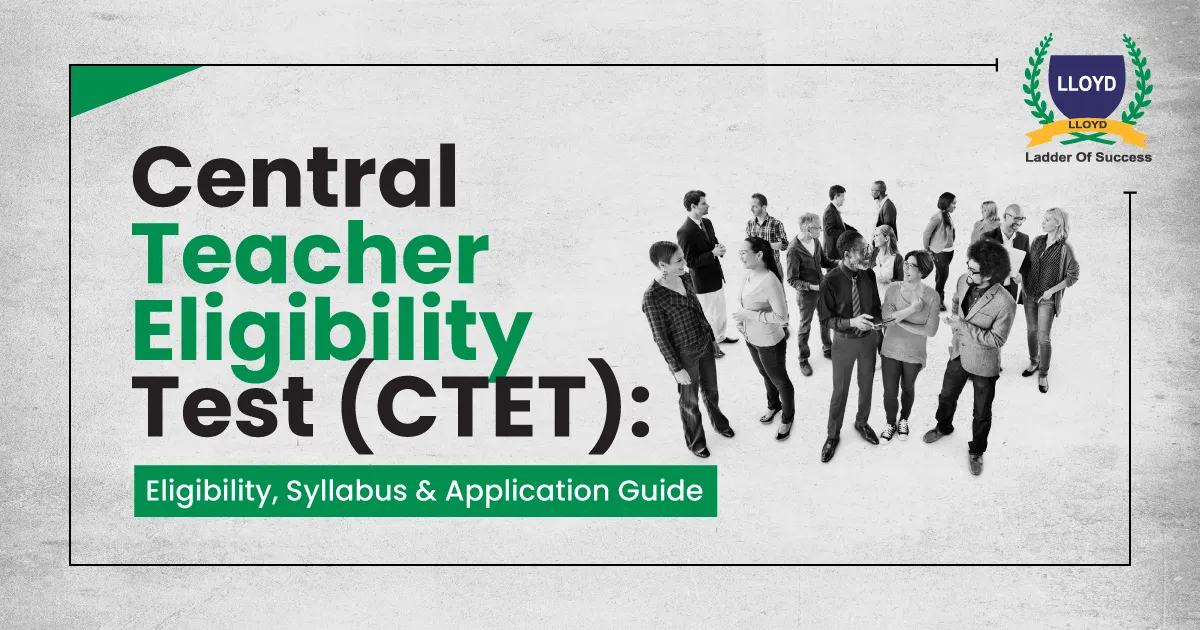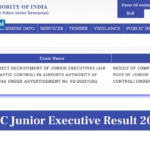The Central Teacher Eligibility Test (CTET) is one of the most important exams for aspiring teachers in India. Conducted by the Central Board of Secondary Education (CBSE), it serves as a benchmark for recruiting teachers in central government schools, including Kendriya Vidyalayas, Navodaya Vidyalayas, and other central government-aided schools.
Qualifying CTET not only enhances employment prospects but also adds credibility to a teaching career, as it ensures candidates meet minimum quality standards set by the National Council for Teacher Education (NCTE). This blog provides a detailed overview of CTET, including exam structure, eligibility, preparation strategies, and career opportunities.
1. What is CTET?
CTET stands for Central Teacher Eligibility Test. It is a national-level exam designed to ensure that aspiring teachers possess the essential knowledge, skills, and aptitude to teach at the primary (Classes I–V) and elementary (Classes VI–VIII) levels.
The test is conducted twice a year by CBSE. A CTET certificate is often a mandatory requirement for teachers applying to central government schools. Additionally, several state governments consider CTET scores when recruiting teachers, giving candidates wider opportunities.
2. Purpose of CTET
The main objectives are:
- Standardization of teacher recruitment: Ensuring a consistent quality benchmark for teachers across India.
- Improving teaching quality: Evaluating pedagogical skills, subject knowledge, and understanding of child psychology.
- Legal compliance: Aligning with the Right of Children to Free and Compulsory Education (RTE) Act, 2009, which mandates that teachers must be certified.
3. Eligibility Criteria
eligibility is defined for two papers:
Paper I (Primary Level: Classes I–V)
- Minimum Senior Secondary (12th) with 50% marks and passed/appearing in a 2-year Diploma in Elementary Education (D.El.Ed) or equivalent.
- OR Senior Secondary with 50% and pursuing a 4-year Bachelor of Elementary Education (B.El.Ed.).
- OR Graduates with 50% and pursuing a 1-year B.Ed. program.
Paper II (Elementary Level: Classes VI–VIII)
- Minimum Graduate degree (any stream) with 50% marks.
- Must have completed or pursuing 2-year Diploma in Elementary Education (D.El.Ed) or 1-year B.Ed. program.
- Candidates appearing for final year examinations may also apply.
The test is conducted twice a year by CBSE. certificate is often a mandatory requirement for teachers applying to central government schools. Additionally, several state governments consider CTET scores when recruiting teachers, giving candidates wider opportunities.
4. Exam Pattern
consists of two papers, each comprising multiple-choice questions (MCQs) with no negative marking.
Paper I – Primary Level (Classes I–V)
| Subject | No. of Questions | Marks | Duration |
|---|---|---|---|
| Child Development & Pedagogy | 30 | 30 | 2 hours 30 mins |
| Language I | 30 | 30 | 2 hours 30 mins |
| Language II | 30 | 30 | 2 hours 30 mins |
| Mathematics | 30 | 30 | 2 hours 30 mins |
| Environmental Studies | 30 | 30 | 2 hours 30 mins |
Total Marks: 150
Paper II – Elementary Level (Classes VI–VIII)
| Subject | No. of Questions | Marks |
|---|---|---|
| Child Development & Pedagogy | 30 | 30 |
| Language I | 30 | 30 |
| Language II | 30 | 30 |
| Mathematics & Science OR Social Studies | 60 | 60 |
Total Marks: 150
- Duration for both papers: 2 hours 30 minutes
- Medium of exam: English and Hindi
5. Syllabus
CTET syllabus focuses on two aspects:
a) Pedagogy & Child Development
- Principles of child development and learning
- Inclusive education and dealing with children with special needs
- Learning and pedagogy strategies for different subjects
b) Subject Knowledge
- Language I & II: Grammar, comprehension, vocabulary, and teaching methodology
- Mathematics: Numbers, geometry, algebra, data handling, pedagogy
- Environmental Studies: Science, social studies, teaching techniques
- Social Studies (for Paper II): History, Geography, Civics, Economics
6. Preparation Strategies
1. Understand the Syllabus Thoroughly
Start by reviewing official CTET syllabus. Identify topics with high weightage.
2. Focus on Pedagogy
- Read NCF (National Curriculum Framework) 2005.
- Focus on child psychology and inclusive education concepts.
3. Practice Subject Knowledge
- Revise NCERT textbooks for Maths, Science, and Social Studies (Class I–VIII).
- Solve previous years’ CTET papers to understand question trends.
4. Time Management
- Divide your preparation into daily study plans.
- Practice mock tests within the exam time frame.
5. Use Reliable Study Material
- NCERT textbooks
- CTET-specific guides from reputed publishers
- Online coaching and test series
7. Application Process
- Online application via official CTET website (https://ctet.nic.in)
- Fill personal and educational details
- Upload photograph and signature
- Pay application fee (varies for General/OBC/SC/ST)
- Download confirmation page for future reference
8. Admit Card and Exam Day
- Admit card released 2–3 weeks before the exam
- Contains roll number, exam center, date, and time
- Candidates must carry admit card and photo ID to the examination hall
9. Result and Certification
- CTET result usually declared within 6–8 weeks of the exam
- Qualifying marks: 60% for General category, relaxations for reserved categories
- Successful candidates receive CTET Certificate, valid for seven years from the date of declaration
10. Career Opportunities After CTET
a) Central Government Schools
- Kendriya Vidyalayas (KV)
- Navodaya Vidyalayas (NVS)
- Central Tibetan Schools
b) State Government Schools
- Many states consider CTET score for recruitment in government schools.
c) Private Schools
- Private and international schools prefer CTET-qualified teachers to maintain quality standards.
d) Other Roles
- Educational consultancy
- Teacher training institutes
- Curriculum development and educational content creation
11. Importance of CTET
- Ensures minimum teaching standards across India
- Improves teaching quality for primary and elementary education
- Mandatory for employment under RTE Act, 2009
- Helps aspirants gain career stability and credibility
12. Challenges in CTET Preparation
- Vast syllabus covering multiple subjects and pedagogy
- Requires understanding of child psychology and teaching techniques
- Time management and regular practice are crucial
- Maintaining motivation through long preparation period
13. Tips for Success
- Start preparation 6–12 months before the exam
- Focus on pedagogy and NCERT books first
- Solve at least 3–5 years of previous papers
- Attempt mock tests regularly
- Revise formulas, grammar rules, and teaching techniques weekly
- Take care of time management and exam strategy
Conclusion
The Central Teacher Eligibility Test (CTET) is a vital stepping stone for those aiming to build a teaching career in India. Qualifying CTET ensures that aspirants meet national standards in teaching competence, subject knowledge, and pedagogy.
With careful planning, consistent study, and strategic practice, aspirants can successfully navigate the CTET journey and unlock opportunities in government and private schools nationwide. The exam not only opens doors to employment but also positions educators as qualified, professional, and skilled mentors for the next generation.










